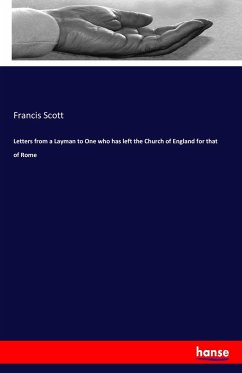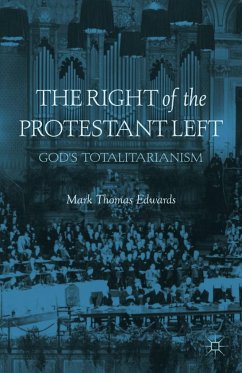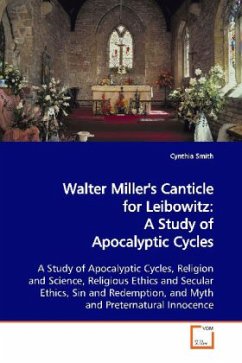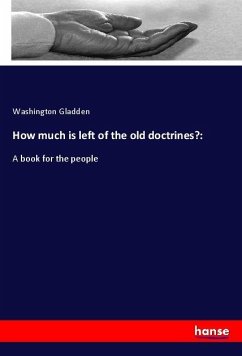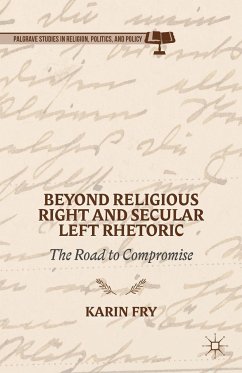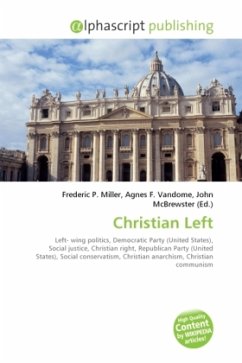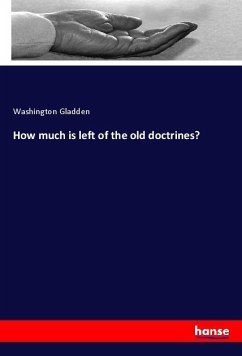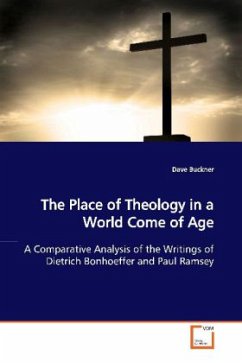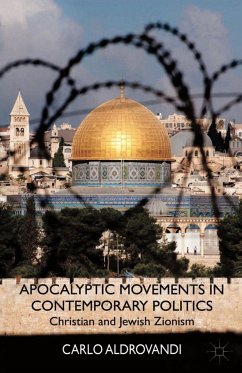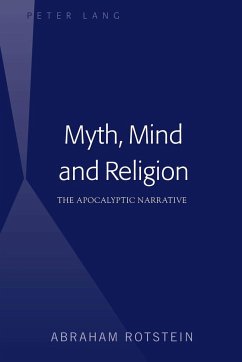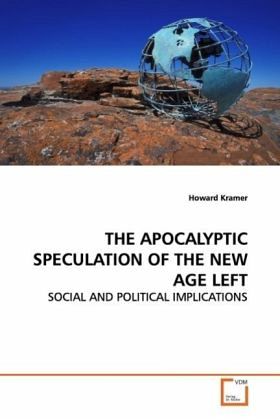
THE APOCALYPTIC SPECULATION OF THE NEW AGE LEFT
SOCIAL AND POLITICAL IMPLICATIONS
Versandkostenfrei!
Versandfertig in 6-10 Tagen
32,99 €
inkl. MwSt.

PAYBACK Punkte
16 °P sammeln!
Though a preponderance of news coverage, scholarlyresearch, and non-academic books have addressed thetopic of modern Christian apocalyptic belief from asociological, political and religious perspective,relatively little has been written about the issue ofwhat some would see as the other end of thecosmological or spiritual spectrum: the apocalypticbeliefs of New Age adherents.This study gathers new empirical data on thispopulation through the use of a 40-question surveydesigned to measure the ontological beliefs ofparticipants, apocalyptic expectations and theirlevel of engagement in the politi...
Though a preponderance of news coverage, scholarly
research, and non-academic books have addressed the
topic of modern Christian apocalyptic belief from a
sociological, political and religious perspective,
relatively little has been written about the issue of
what some would see as the other end of the
cosmological or spiritual spectrum: the apocalyptic
beliefs of New Age adherents.
This study gathers new empirical data on this
population through the use of a 40-question survey
designed to measure the ontological beliefs of
participants, apocalyptic expectations and their
level of engagement in the political process.
In a wide variety of correlation and group comparison
tests, a negative relationship was found between New
Age apocalyptic belief and political/civic
engagement. There also seemed to be a hint that more
catastrophic views of the future produce a greater
likelihood of disengagement from the political or
electoral sphere.
research, and non-academic books have addressed the
topic of modern Christian apocalyptic belief from a
sociological, political and religious perspective,
relatively little has been written about the issue of
what some would see as the other end of the
cosmological or spiritual spectrum: the apocalyptic
beliefs of New Age adherents.
This study gathers new empirical data on this
population through the use of a 40-question survey
designed to measure the ontological beliefs of
participants, apocalyptic expectations and their
level of engagement in the political process.
In a wide variety of correlation and group comparison
tests, a negative relationship was found between New
Age apocalyptic belief and political/civic
engagement. There also seemed to be a hint that more
catastrophic views of the future produce a greater
likelihood of disengagement from the political or
electoral sphere.



